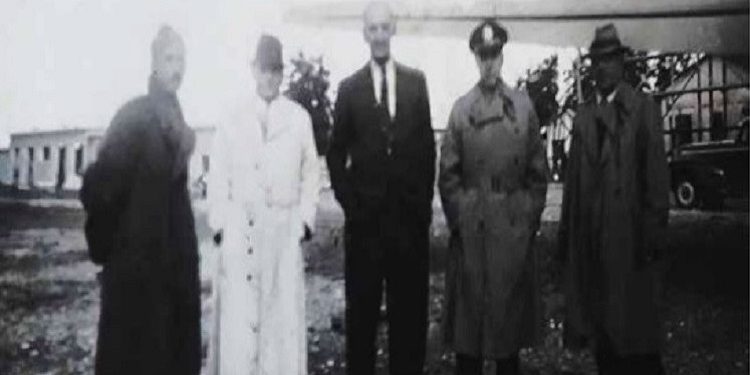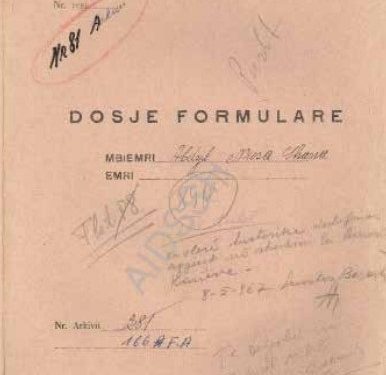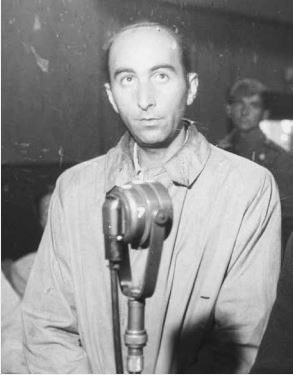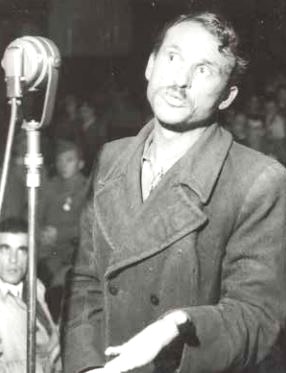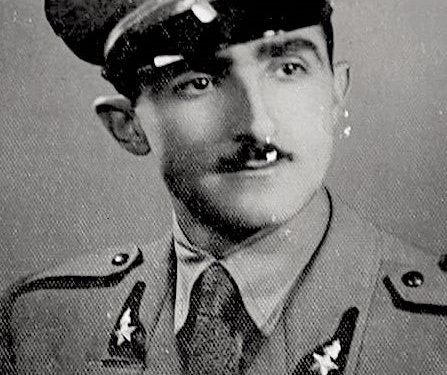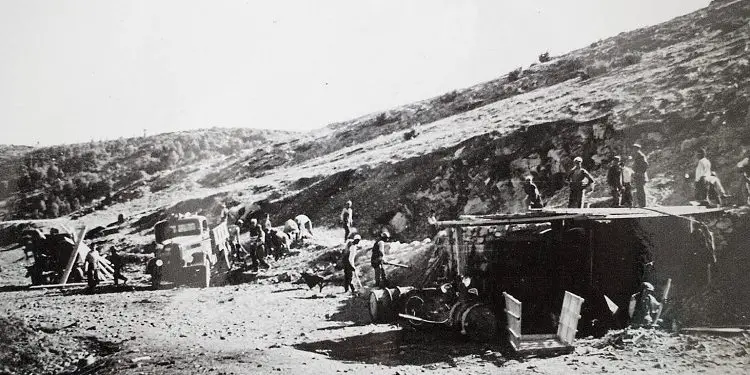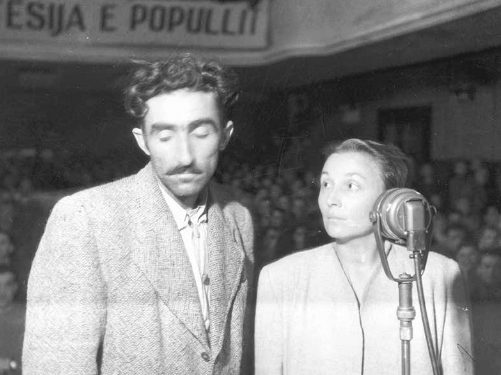From Msc. Kejsi Ziu
The second part
Memorie.al / From the beginning of its existence, the communist regime in Albania was characterized by violations of the most basic human rights, as a continuous means of work, starting from the elimination of private property, to the use of forced labor, inhumane and humiliating treatment and imprisonment, killing of opponents or other individuals, caught in the destructive whirlwind of communist aggression. A concrete example of this deeply inhumane and anti-Albanian policy is the arrest of the group of engineers charged with the task of draining the Maliq Swamp, accused by the regime of being saboteurs and collaborators of American espionage in Albania.
But how does the truth stand? Kujtim Beqiri was an excellent student of the University of Vienna, Austria. He had refused a position as a lecturer at this university, to return and contribute to the reconstruction of his country. His excellent academic results are best evidenced by the copy of the diploma that this university itself has issued, shown above.
His level of professionalism is also evident from the reports of the Security, despite the language used on his figure: From the study of the files containing the testimonies of Kujtim Beqir and other engineers, it is clear that they were taken under pressure and torture of various types (physical and psychological), without their free will. A concrete detail that best proves this is found in a part of Beqir’s testimony, which, after being typed, was corrected by the defendant’s handwriting.
The file also contains the inventory of items and properties that were found on the defendant at the time of his arrest, which, in accordance with the laws of the time, were confiscated by the state, which, in addition to removing physical freedom, also deprived individuals of their property movable and immovable.
A further reason for the punishment of the engineers was the communist government’s justification for the failure to drain the Maliqi Swamp, the works for which should have been completed by October 1946, but due to insufficient funds and primitive work tools. , this plan was not realized.
During the testimony at the Security offices, Kujtim Beqiri emphasizes the financial and material shortages, as well as the primitive work tools, as an obstacle to the fast pace of work.
For this reason, he had drawn up a new plan for the development of the works, which had absolutely no sabotage intentions, as was accused. The propaganda of the communist regime, to trample on the figure of the talented engineer Kujtim Beqiri and other intellectuals, was manifested not only in the attitudes of state administration institutions, but also became a subject in literary works of the time, such as novels or films, with the intention to perpetuate in the eyes of the Albanian people the staging carried out by the regime as a truth.
At the end of his life, shortly before the end of the staged trial, where Kujtim Beqiri was sentenced to death, he sends a farewell letter to his family. In the signature placed at the end of the letter, it seems clear that his only wish is that after his death, he would not be remembered as a saboteur and criminal of his country, as he was accused, but as a dedicated professional, as he was the truth.
US-Albania diplomatic relations: The post-war situation and the arrival of Anglo-American missions, UNRRA and OSS
In the period 1945-1946, various missions with humanitarian goals landed in the country, such as UNRRA, financed by the Allied Forces, mainly by the American government, to help the National Liberation Front, economic aid and later, in the recovery of the Albanian people. This organization was headed by Frank Woodard, who held the position of Director of the Agricultural Division for Albania.
After the end of World War II, UNRRA’s mission was to provide economic assistance to European nations after World War II and to repatriate and assist refugees who would come under Allied control.
The US government funded approximately half of UNRRA’s budget. UNRRA did not operate only in Albania, but in all countries that had suffered economic losses during the War.
Other missions that arrived in Albania in that period were of a military nature, such as the American one headed by Harry T. Fultz, as well as the one sent by the British government. The arrival of the UNRRA mission in Albania intensified the class struggle even more.
According to the communists, UNRRA would use its “imperialist logic” to engage in espionage and sabotage. Using the State Security, it was intended to keep under constant control the activity of the employees of this organization, because it prevented any possible indoctrination of the Albanian people with the Western democratic spirit.
Two de-classified State Security files, specifically File No. 20, “Correspondence exchanged between UNRRA personnel and the military mission in Albania, on their actions in our country” and File No. 80, “informative data from agency sources on the activity of UNRRA missionaries and hostile and suspicious Albanian elements”, best testify to the surveillance of UNRRA activity, manifested either through reports drawn up by the employees themselves Security, where every move or discussion of them was detailed, either through the periodic testimonies of the network of associates of the Security on them, who in most cases, are mentioned through pseudonyms.
The Anglo-American military missions that landed on the territory of newly liberated Albania in 1944 belonged to the organizations SOE (Special Operations Executive) and OSS (Office of Strategic Services).
The common official purpose of both missions was to assist with armed troops in the National Liberation War as well as to open negotiations with the newly formed communist government to ensure that the latter would respect respectively: conduct free elections and the continuity of bilateral treaty obligations between it and the US (undertaken by the previous government). However, it should be noted that the main functions of the OSS/SOE were those of an intelligence agency.
From the coming to light of new declassified documents belonging to that period, it is proven that the missions sent by them had as their objective to know the political situation in which Albania was located. Consequently, it turns out that the intelligence agencies operating in the Balkans, including Albania at the time of World War II, were mainly American and British, and the arrival of the missions sent by them was made possible only through secret cooperation agreements between the OSS from on the one hand and the SOE on the other, in June 1942 and August 1943 (US State Archives – UNRRA, 1943: 1-23).
In Albania, their roles were different: the main task of the OSS mission was to draw up continuous intelligence reports, regarding the relations that the newly installed leader of the Albanian state, Enver Hoxha, had with the Soviet Union, the influence that could the latter had in the country and in US-Albania relations in the future, while the English mission aimed to build a more active agency network.
In November 1943, the mission of the OSS in Albania was taken under the direction of Harry T. Fultz53, a veteran of the First World War and the former director of the Technical School in Albania (1922-1931), now in the role of a civilian, who until that moment he had directed the Albanian Section of the OSS in Bari, as a result of his strong knowledge of Albania.
Something like this is confirmed by a telegraphic correspondence between J. Jacobs and the US Department of State, where Fultzi was planned to enter the Albanian territory, first as a member of the OSS mission and later to serve as an Economic Adviser to the US Department of the State. In addition, the telegram instructed that, after the arrival of the OSS mission from Italy to Albania, the work carried out until then by the predecessor American staff should be coordinated with that of Fultz.
Almost from the moment that Fultzi returned to the political life of Albania, he began to be monitored by the State Security, as evidenced by a de-classified Security file on him (Dose No. 100), where in addition to daily surveillance of his activity, his early life, activity as director of the Technical School in Tirana, as well as his leadership role in OSS are described in detail.
The OSS mission was given permission by the communist government to use the buildings of the American Legation (Embassy) in Tirana, as a temporary headquarters, an element that often appears in the files compiled by Sigurimi, where most of the surveillance that have been done to Fultz and other members of the American mission, have their starting point there.
One element that is worth noting in terms of how State Security operated is the fact that the latter violated the right to privacy, not only of Fultz and other members of the mission, but also of his family members. , as evidenced by the surveillance file of his daughter, Joana, who was only 21 years old at the time.
About the figure of Harry Fultz and his involvement in the “sabotage” of the Maliqi Swamp
During the period when he directed the Technical School (1922-1931), he was always in the role of an educator for the Albanian people, because he helped educate many generations in natural sciences and the English language. His children testify that he inherited his love for the Albanian people.
His son, Dave, a prominent academic figure in the USA, during an interview given in 1993, has discussed at length his father’s contribution to our country. He described this kind of dedication as contagious, to the point where he himself was inspired to pursue a career in scientific fields as a result of the years he had spent in Albania studying at his father’s school.
During the period when Fultzi performed the role of director of the Technical School (until 1933), there is no document to prove that he had any connection with the American intelligence services. His involvement with the OSS therefore came during World War II.
This detail is confirmed, first, by his OSS personnel file, which is now declassified, as well as by the microfilms found that contained the declassified agency files of Donovan, the head of the OSS, and disclosed by the American State Archives, where H. T. Fultz, turns out to be a subject recruited in this agency.
Also, according to an account made by the former captain of the OSS, who operated in Albania in those years, James “Jim” Hudson, for an Albanian newspaper in 2012, it was this period (after 1943) when Harry Fultz could be addressed to all his former students, as well as former professors of the Technical School, in order to recruit a network of Albanian informants, who could potentially be used by the OSS, even after the establishment of the communist regime.
History supports the fact that there were attempts by the OSS to recruit Albanian exponents of the diaspora, who were against the Hoxha regime, to carry out agential activities (this group was called the Albanian Subversion or Committee for the Liberation of Albania – Committee Free Albania), but this occurred in 1949, years later from the arrest and conviction of the group of engineers, as well as from the departure of the American mission from the country. This recruitment operation was the result of a collaboration between the American and English missions and was named; OBOPUS /BGFIEND. Memorie.al
The next issue follows




